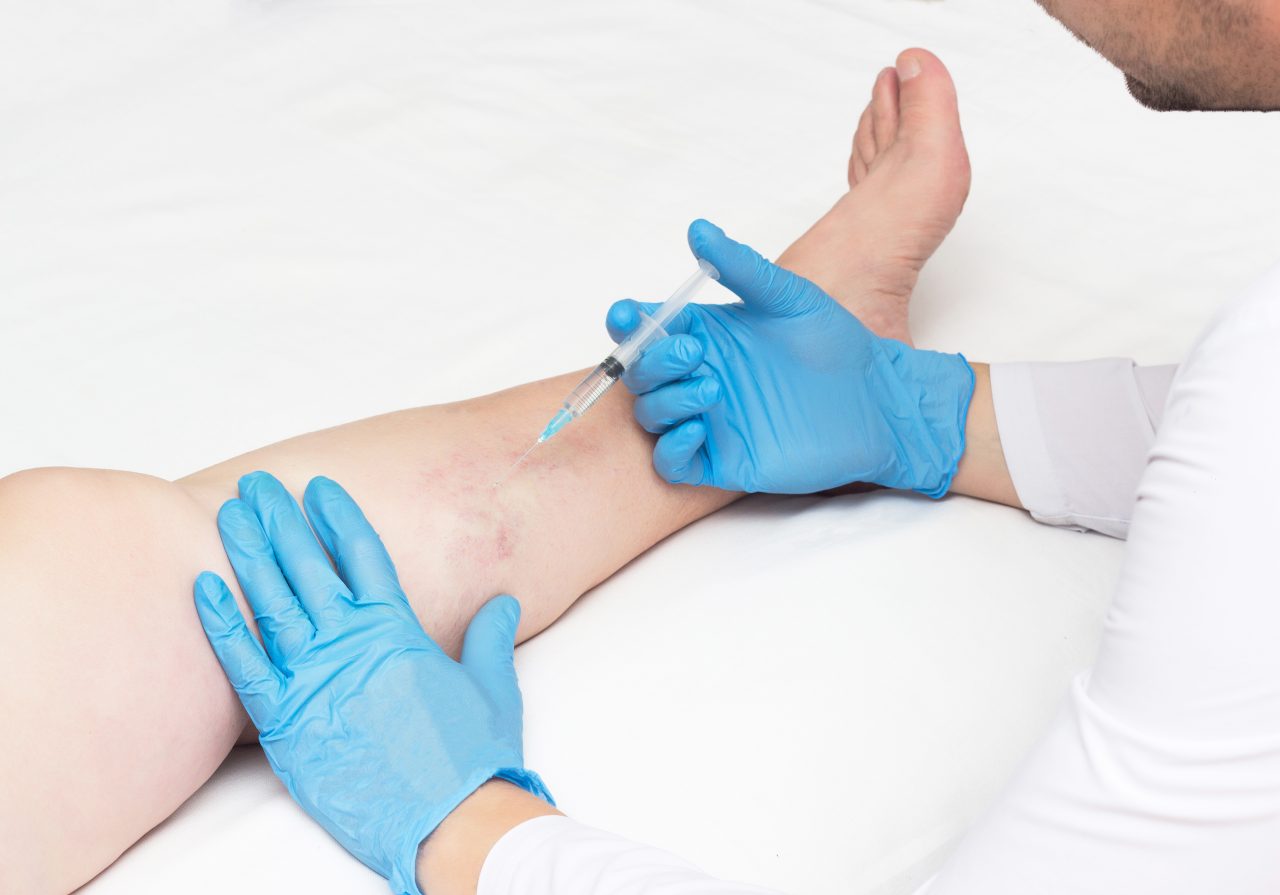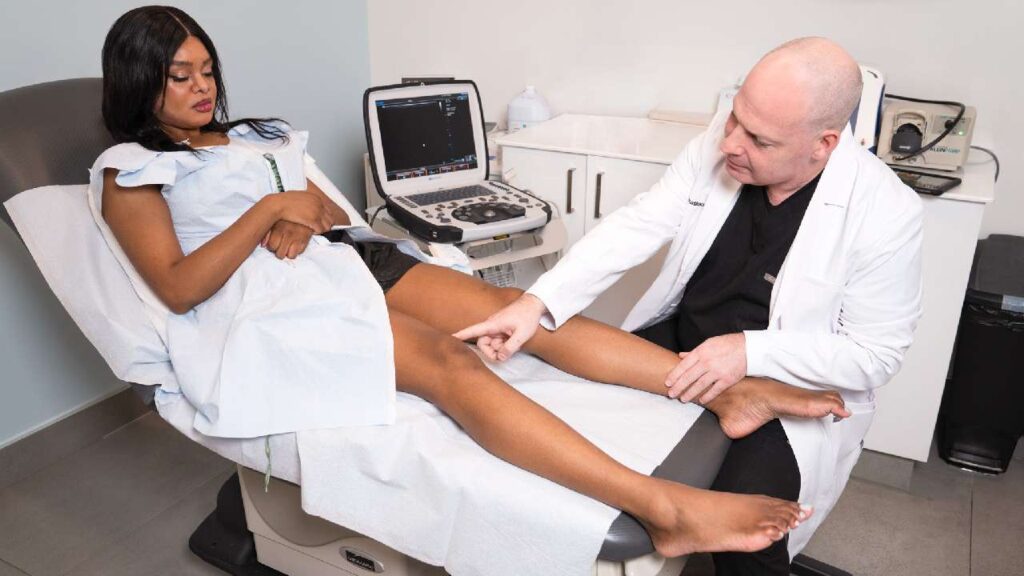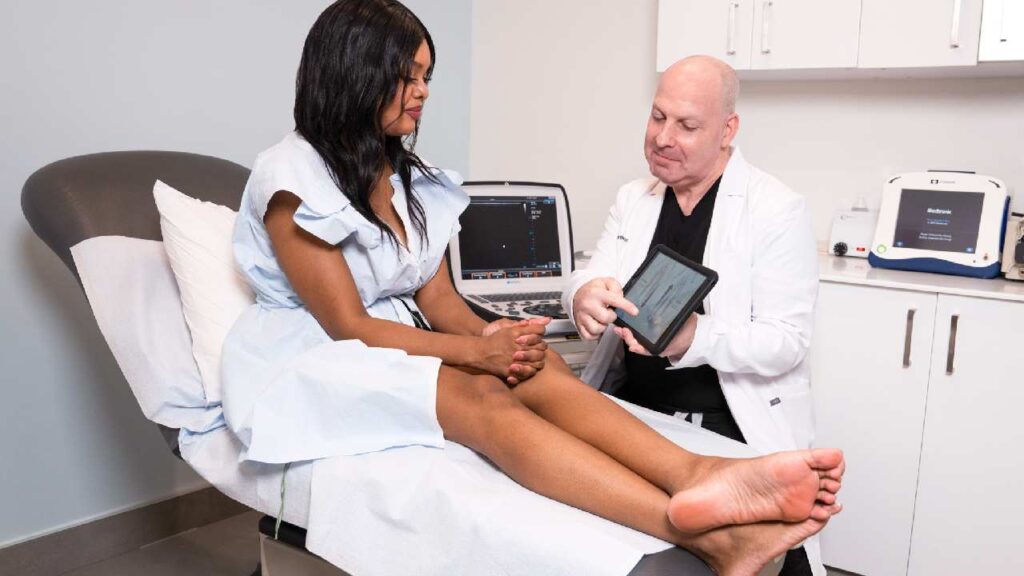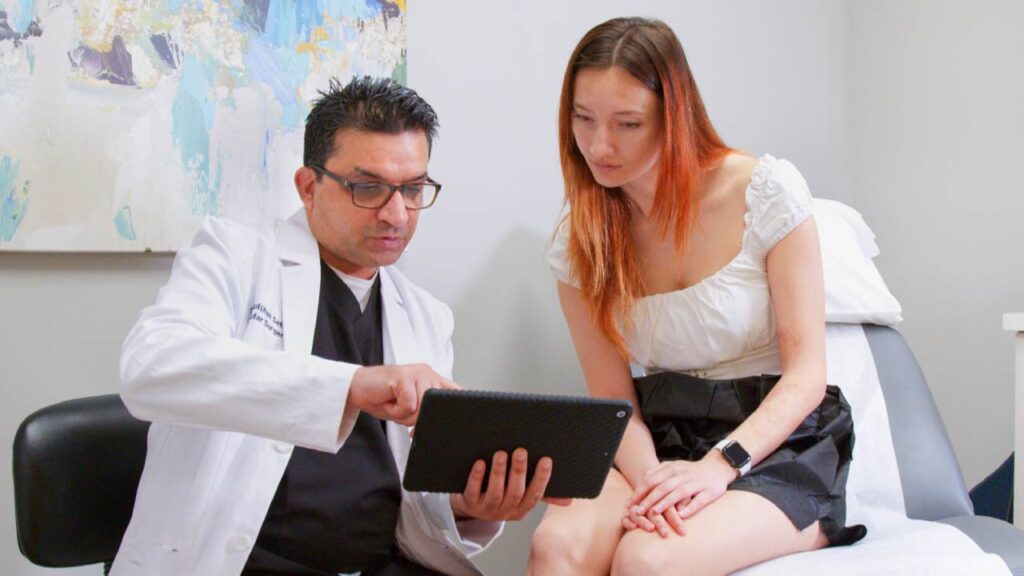1. A Vein Clinic Can Map Your Veins
What does a vein clinic do? One of the most exciting innovations is vein mapping. Vein mapping is a versatile test that identifies issues like varicose veins, spider veins, blood clots, vein disease, and broken vein valves. Clinics with vein mapping technology bounce sound waves off veins, and the resultant sound indicates how well the vein is pumping blood. These waves create images and videos on a screen, so the vein doctor can see your unique venous pathways. This is an exceptional tool for detecting and treating vein issues with precision. If you have vein damage, vein disease, or a family history of either, book an appointment with a vein mapping clinic today. Our Harvard-trained vein doctors will assess your vascular health to prevent complications.

2. A Vein Clinic Detects Abnormal Veins and Blood Clots
Abnormal veins like varicose veins and spider veins are often apparent through the skin. But ultrasound-guided procedures like vein mapping identify issues you can’t see. Among the most serious is a blood clot, or deep vein thrombosis, that threatens to break loose. If a clot travels to the lung, it can cause a pulmonary embolism. In addition, surface vein damage often stems from valve failure in deeper veins, which is called venous insufficiency. Identifying and treating deep vein valve failure is key to preventing more abnormal veins at the surface.
3. A Vein Doctor Conducts Minimally Invasive Vein Treatments
Some patients assume vein clinics are just for vein surgery. But phlebologists and vein specialists use minimally invasive alternatives to treat veins. In recent decades, less invasive measures have largely replaced surgery for varicose veins and spider veins. Our award-winning vein specialists use tools like sclerotherapy, radiofrequency ablation, vein adhesives, mechanochemical ablation, surface lasers, and endovenous laser ablation to treat veins. These methods close the vein inside the body, rather than cutting it out. The result is a safer, gentler, faster, and more affordable experience.
4. Clinics with Vascular Surgeons Do Ambulatory Phlebectomy
If you do need surgery, vascular surgeons can perform traditional vein stripping surgeries like phlebectomy. If you’re eligible, many vein clinics can now administer ambulatory phlebectomy, as well. This technique uses small punctures rather than wide incisions to extract the vein. Ambulatory phlebectomy doesn’t require general anesthesia, so the risks and recovery are superior to traditional surgery.
5. A Vein Doctor Treats Chronic Venous Insufficiency
One of the top reasons to visit a vein clinic, instead of a dermatological clinic, is that vein doctors treat Chronic Venous Insufficiency. When vein valves fail, they allow blood to flow in reverse and engorge the vein. This excess pressure is the impetus for most spider veins and varicose veins. Vein doctors have the technology to locate and treat faulty valves in deeper veins. That is essential to reduce the development of new spider veins or varicose veins.
6. A Vein Specialist Relieves Pain, Swelling, and Heaviness
Do your legs feel crampy, heavy, achy, itchy, swollen, or fatigued? Unbeknownst to most patients, these are all symptoms of Chronic Venous Insufficiency. Many patients are shocked to see these symptoms disappear after vein treatment. Varicose veins and spider veins aren’t just unpleasant looking, they also feel unpleasant. And when venous insufficiency goes untreated, it can progress to involve venous ulcerations, hyperpigmentation, venous stasis dermatitis, and profuse bleeding. Visiting a vein clinic heals your blood vessels as well as your skin.
7. A Vein Doctor Improves Your Sleep
Do your legs feel restless when you try to sleep? Are you bothered by an irresistible urge to move your legs? You might assume you have Restless Leg Syndrome. But you should see a vein doctor before accepting that diagnosis. Vein disease and restless legs are closely linked. Many patients find that their restless sensations disappear once they treat their veins. Sleep quality is often improved when you restore your circulation.
8. A Vein Clinic Improves Your Self-Confidence
If you feel self-conscious about your varicose veins or spider veins, you aren’t alone. The prominent blood vessels can cause dissatisfaction with your appearance, and they can make you feel older or less healthy than you are. Vein damage is common, and often beyond our control. The top two predictors are family history and gender. So, you shouldn’t be ashamed of your veins. But that doesn’t mean you shouldn’t treat them, if it would improve how you feel. Our patients frequently leave our clinic excited to wear their summer apparel more confidently.
9. A Vein Doctor Restores Your Productivity
Many patients don’t realize how disruptive vein issues can be. Painful, swollen veins can distract you while you work. Restless sensations can interrupt your tasks and disrupt your sleep at night. Complications like ulcerations and dermatitis can be so unbearable that they restrict your activities. Treating your veins rids you of symptoms that reduce your productivity. You’ll become more energized and efficient, which improves your quality of life.
10. Visiting a Vein Clinic Can Save Your Life
While some varicose veins and spider veins are asymptomatic, others can become quite problematic. If you don’t see a vein specialist, you could develop life-threatening complications. These include profuse bleeding, infected ulcerations, deep vein thrombosis, and pulmonary embolism. It’s impossible to predict how your veins will progress, simply by looking at them. Visiting a vein clinic can save your life since these doctors have ultrasound tools to detect problems before they arise. Book an appointment with a vein doctor in New York to avoid preventable complications.





